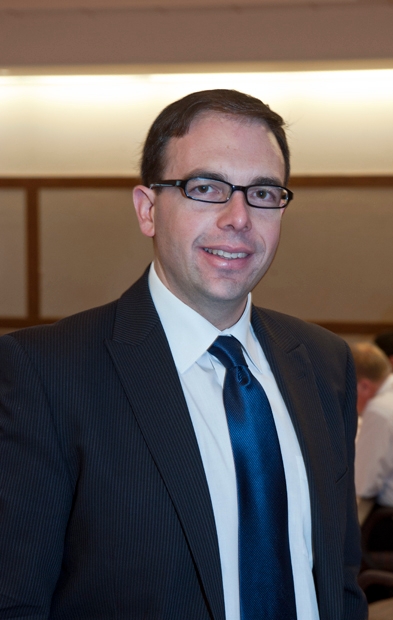
By
A US Department of State-sponsored program run by the Boston College Irish Institute is aiding officials from Ireland and Northern Ireland on issues ranging from entrepreneurship to education reform by bringing officials from both countries to BC and sites throughout the US.
Last week, officials spent several days on campus and in Boston meeting with education policy experts, state leaders and University faculty to discuss efforts on both sides of the Atlantic designed to reform schools to meet the changing demands of societies and economies. The group then headed to Indianapolis, for a similar series of meetings.
As part of the Center for Irish Programs at Boston College, the Irish Institute seeks to promote the peace and normalization process on the island of Ireland and to contribute to social, political, and economic stabilitythrough cross-border and cross-community cooperation. Since its founding in 1997, the institute has sponsored more than 100 programs, hosting more than 1,000 officials from a range of sectors.
Irish Institute Director Robert Mauro said last week’s program, sponsored by the State Department’s Educational and Cultural Affairs Bureau, is designed as an educational exchange that not only looks at innovative solutions to pressing social and economic problems, but also promotes political cooperation.
“The goal of the exchange is to promote collaboration and peace and reconciliation on the island of Ireland, demonstrate best practices, and enhance and encourage relations between the US and Ireland and Northern Ireland,” Mauro said.
The group of education officials met with Massachusetts Secretary of Education Paul Reville and Boston Public Schools Superintendent Carol Johnson, as well as Boston-area teachers and principals, and listened to presentations by Lynch School of Education faculty.
John Lawlor, the executive director of Bridge 21, a Dublin-based collaboration developing new models for classroom instruction, said meeting with his peers from Northern Ireland and the US presents a unique opportunity to examine a range of issues.
“Bringing this diverse group of people together gives us a chance to compare our two systems and see how similar the problems are and we find there are the same problems here in the US,” said Lawlor. “It’s given us a real determination to find some solutions. There’s a lot to learn from our shared problems. It’s a unique forum.”
Pamela McCrum, principal of Mullavilly Primary School in rural County Armagh of Northern Ireland, said educators in her country face a range of challenges, including recent budget cuts, an achievement gap and an influx of immigrants for whom English is a second language.
“The networking opportunities are a real benefit,” said McCrum. “This gives me a chance to better understand the educational system in the south of Ireland, learn about US and best practices and look at the approach in Massachusetts on standards and reform. It’s a great opportunity.”
Last month, Irish economic development officials attended a program focused on developing young entrepreneurs, splitting their time between Boston and San Diego.
Once a roaring engine of Europe’s economic resurgence, the so-called Celtic Tiger has been among those national economies most badly damaged by the financial crisis of the past three years. Unemployment in Ireland is approximately 14 percent, while in Northern Ireland nearly 8 percent are unemployed, a majority of those people under the age of 25.
Mauro said economic growth is not only critical to the health of both countries, but also plays a key role in the evolution and success of the Northern Ireland peace process.
“Economic recovery bears an extra burden in an era of reconciliation and political cooperation that has seen both Ireland and Northern Ireland set bold new courses toward the future,” said Mauro.
While the groups are in Boston, Mauro organizes meetings and presentations involving leading state officials, experts from BC and other universities, and meetings with non-profit organizations and corporate leaders.
“This exchange gives Massachusetts a chance to contribute, once again, to the Northern Irish peace process and to enhance Massachusetts entrepreneurial activities through international collaboration, which is foundational to the regional economy,” said Mauro.



